57 F. high in the Twin Cities Monday.
60 F. average high on October 13.
61 F. high on October 13, 2013.
October 13, 1966:
An enormous hailstone crashed through the windshield of a truck near
Claremont in Dodge County. It was reported to be 16 inches in
circumference.
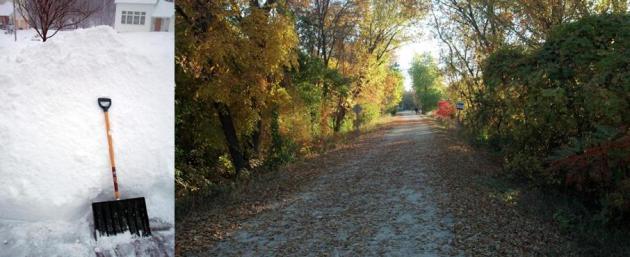
Afterglow
Talk about a meteorological disconnect. Today the sun will struggle as high into the southern sky as it was back on February 28, when the max temperature in the Twin Cities was a brisk 14F, after waking up to a crisp -9F.
Today will be nearly 50 degrees warmer. Why the radical difference? No snow on the ground yet is good for 20-30 degrees. Water retains warmth faster than land; a subsequent "lag" in the atmosphere applies a temperature break to an inevitable temperature tumble. And autumns have been trending milder/longer; safe ice on most Minnesota lakes has been delayed until December.
Nothing even remotely wintry is shaping up the next 2 weeks; a more zonal, west to east steering wind aloft keeping us milder than average into late October. Temperatures top 60F from today into Thursday. After cooling off this weekend long-range guidance hints at more 60s late next week. The weather will cooperate with harvest, fall clean-up and power-raking in the days to come.
Today's storm pinwheels just to our east, soaking Wisconsin; a chance of windblown rain showers by late Friday.
Autumn in Minnesota is an Immersive IMAX 3-D Sensation. And we're all invited to the premiere.
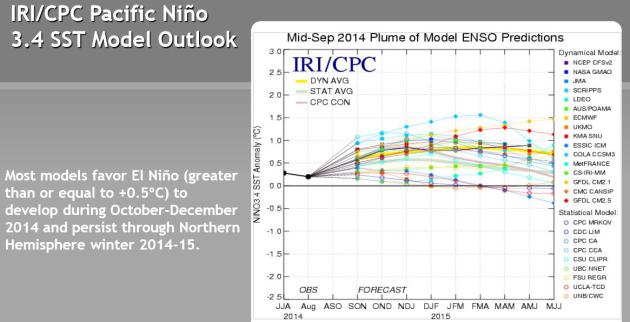

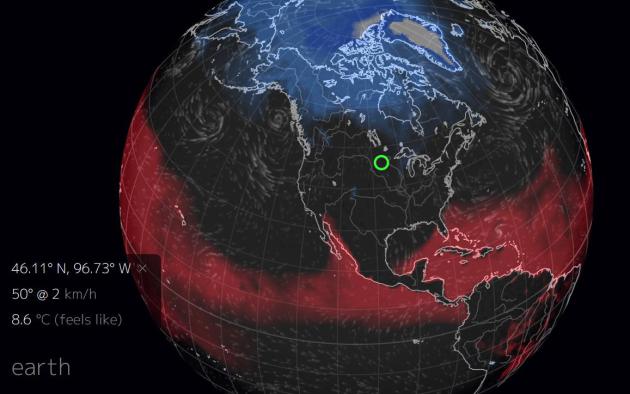
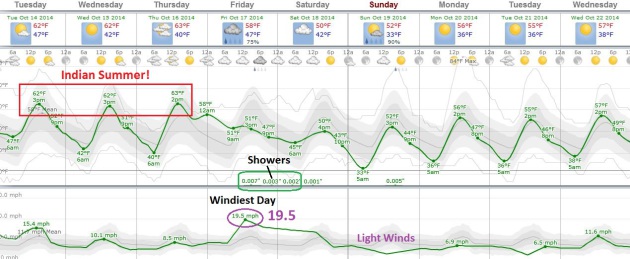
A Fine Spell.
Indian Summer lingers into Thursday, before a stormy kink in the jet
stream tugs chilly air south of the border, sparking strong winds and PM
showers Friday, and a rerun of jackets next weekend. Temperatures
moderate again next week; I still think we may see a few more days above
60F by the end of next week. Source: Weatherspark.
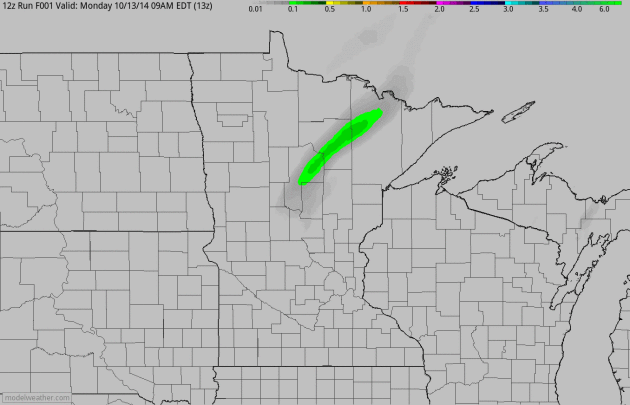
Close Call.
Parts of Wisconsin will see an old-fashioned soaker, as much as 2-3"
possible from near Madison to Wausau and Green Bay; 1-2" rainfall
amounts brushing far southeastern Minnesota.
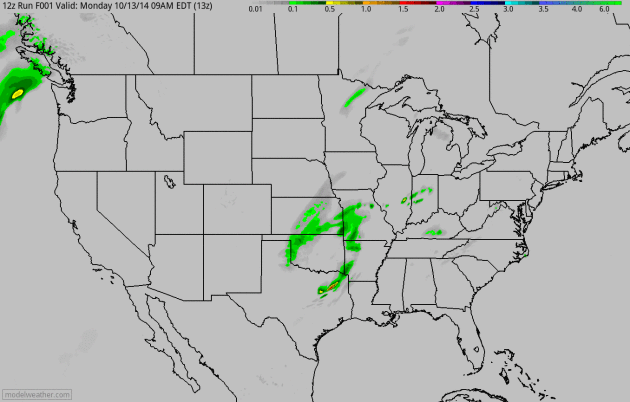
60-Hour Accumulated Rainfall.
The same storm responsible for at least one tornado-death in Arkansas
and numerous reports of straight-line wind damage over the Lower
Mississippi Valley will push a smear of heavy rain into the Ohio Valley
and Great Lakes today; heavy showers spreading into the East Coast by
Thursday. NOAA NAM guidance: HAMweather.
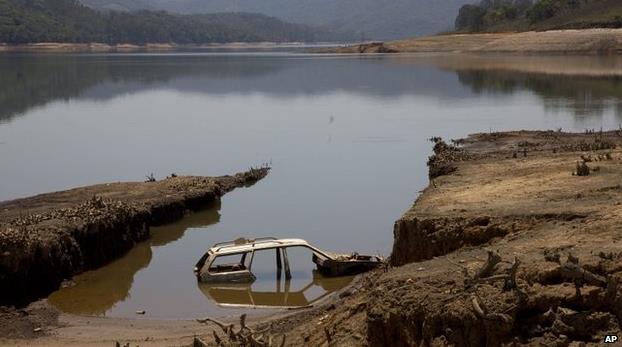
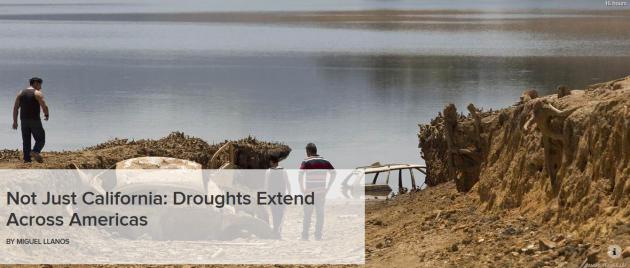
Not Just California. Droughts Extend Across Americas. More perspective from NBC News; here's a clip: "...A
dry spell has killed cattle and wiped out crops in Central America,
parts of Colombia have seen rioting over scarce water, and southern
Brazil is facing its worst dry spell in 50 years. In the U.S., the few
who have taken notice of this wider water scarcity include a former
director of the U.S. Geological Survey. Now editor-in-chief of the
journal Science, Marcia McNutt last month penned an editorial highlighting what she called “a drought of crisis proportions” across the Americas..." (Photo credit: Andre Penner, AP).
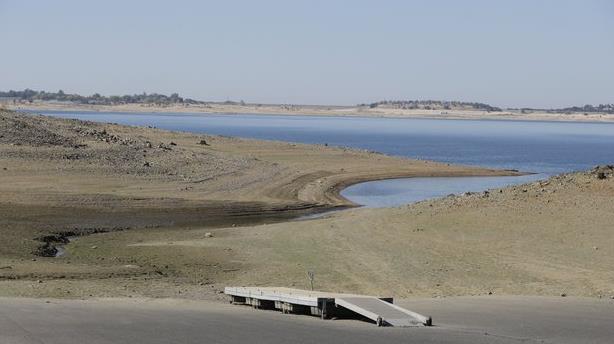
Is California Headed To "Megadrought"? UT San Diego has the story, looking at previous dry spells across the western USA; here's an excerpt that caught my eye: "...In
a study published this month, Cornell University researcher Toby Ault
and some of his colleagues calculated the risk of a megadrought
happening this century. Ault is a professor in the Department of Earth
and Atmospheric Sciences at Cornell University. He and the other
researchers concluded that natural circumstances and climate change
combine to put the likelihood of a decade-long drought in the Southwest
at 50 percent to 80 percent. And they estimate that the chance of a
megadrought, which they define as a 35-year dry period, is 10 percent to
50 percent by the end of this century..."
Photo credit above: "In
this photo taken Oct. 6, 2014, a dock sits high and dry at the end of a
boat ramp yards away from the edge of Folsom Lake near Folsom, Calif.
The California Department of Water Resources reported Tuesday, Oct. 7,
2014, the largest monthly decline in water use this year as the severity
of California's drought hits home. Water suppliers reported that
consumption fell 11.5 percent in August compared with the year before." (AP Photo/Rich Pedroncelli) The Associated Press.


Edward Snowden's Privacy Tips: "Get Rid of Dropbox", Avoid Facebook and Google. Well that should be easy. Techcrunch has excerpts of a recent interview; here's an excerpt of an excerpt: "According
to Edward Snowden, people who care about their privacy should stay away
from popular consumer Internet services like Dropbox, Facebook, and
Google. Snowden conducted a remote interview today as part of the New Yorker Festival,
where he was asked a couple of variants on the question of what we can
do to protect our privacy. His first answer called for a reform of
government policies. Some people take the position that they “don’t have
anything to hide,” but he argued that when you say that, “You’re
inverting the model of responsibility for how rights work...”
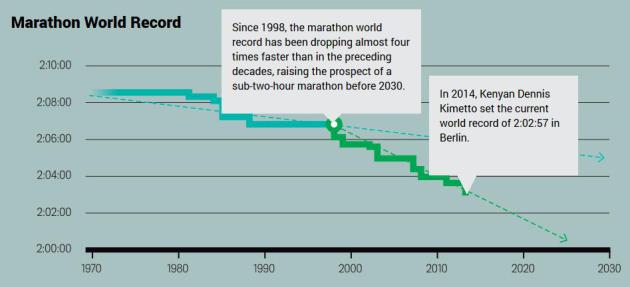
What Will It Take To Run A 2-Hour Marathon.
I run when chased, but I have the utmost respect for (all) runners,
especially marathoners. What will it take to crack the 2 hour mark?
Here's an excerpt of a fascinating article at Runner's World: "...The
current world record of 2:02:57, set by Kenyan Dennis Kimetto this year
in Berlin, works out to 4:41.5 per mile; a sub-two would require less
than 4:35 per mile. Will a human ever run that fast? To answer that
question, we assembled a database of more than 10,000 top marathon
performances going back half a century, using rankings compiled by the
Association of Road Racing Statisticians. We crunched the numbers and
plotted the trends to identify the factors that helped race times
improve so dramatically since da Costa’s 1998 performance. Why? Because
it’s those nine factors that will determine the likelihood of a
sub-two-hour race—and they’ll all have to align to create the perfect
race for the perfect runner..."

University of Washington Fusion Reactor Promises "Cheaper Than Coal" Energy.
I'll believe it when I see it, but this is the kind of breakthrough
we're going to need to wean ourselves off fossil fuels (faster). Because
scaling renewables like wind, solar and geothermal won't be able to
provide the base-line energy energy needs for some time to come. Here's a
clip from Gizmag: "In
the 21st century, the world lives with two futures ahead of it – one of
looming energy shortages, and another of godlike energy abundance. The
key to this whether it’s possible to turn fusion
reactor technology from a laboratory exercise into a real-world
application. Engineers that the University of Washington (UW) are
working on a fusion reactor that, when scaled up, could produce energy
on a practical scale, yet at a cost rivaling that of a conventional
coal-powered plant..."

TODAY: Partly sunny and windy. Winds: N 15-25 High: 62
TUESDAY NIGHT: Clear and cool. Low: 42
WEDNESDAY: Plenty of mild sun, milder than average. High: 64
THURSDAY: Fading sun. Last day of Indian Summer this week. Wake-up: 41. High: 66
FRIDAY: Windy, cooler with PM showers. Wake-up: 50. High: 55
SATURDAY: Mostly cloudy and brisk. Wake-up: 40. High: 52
SUNDAY: More sun, a bit milder. Wake-up: 34. High: 58
MONDAY: Blue sky, not bad for October 20. Wake-up: 36. High: near 60
Climate Stories...

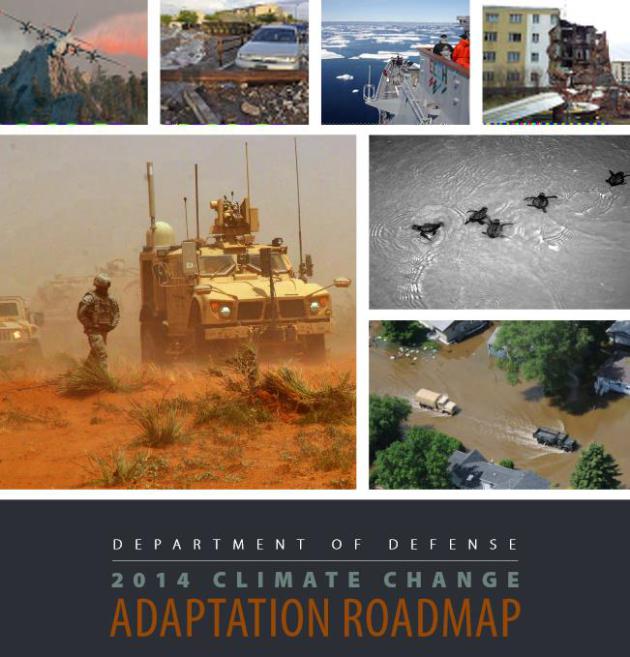

Pentagon Signals Security Risks of Climate Change. Here's a clip from a New York Times story: "...The
report is the latest in a series of studies highlighting the national
security risks of climate change. But the Pentagon’s characterization of
it as a present-day threat demanding immediate action represents a
significant shift for the military, which has in the past focused on
climate change as a future risk. Before, the Pentagon’s response to
climate change focused chiefly on preparing military installations to
adapt to its effects, like protecting coastal naval bases from rising
sea levels. The new report, however, calls on the military to
incorporate climate change into broader strategic thinking about
high-risk regions — for example, the ways in which drought and food
shortages might set off political unrest in the Middle East and Africa..."

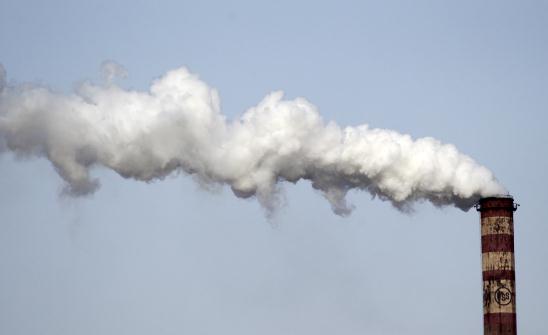
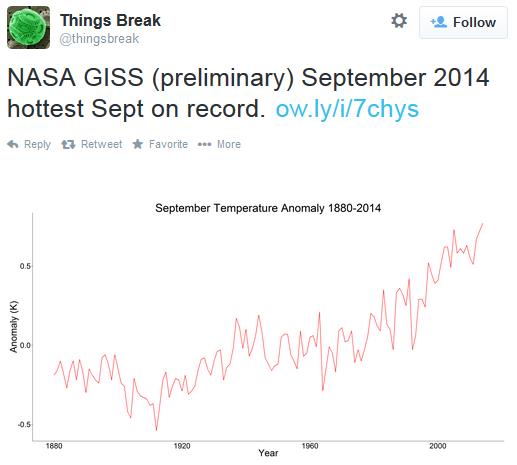
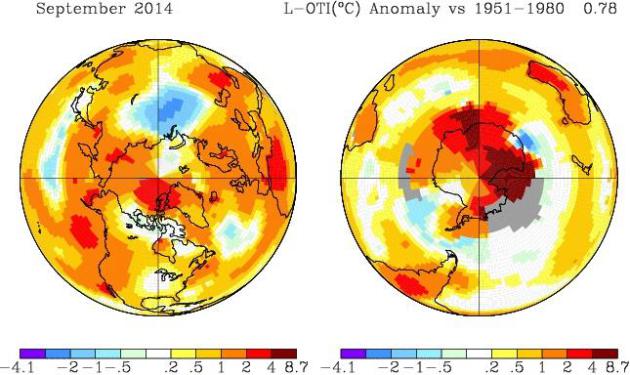
* Preliminary NASA GISS data suggests that 2014 (January - September) is the 3rd warmest on record, worldwide.
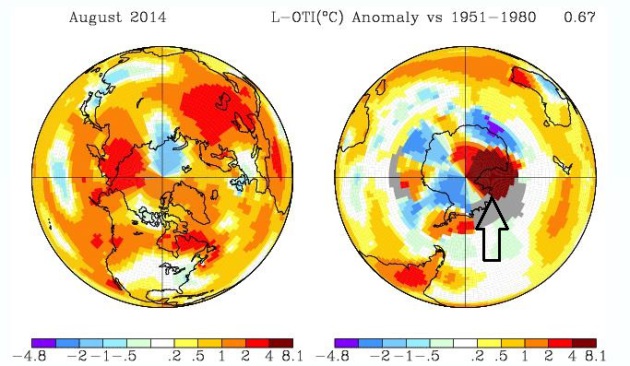
No comments:
Post a Comment